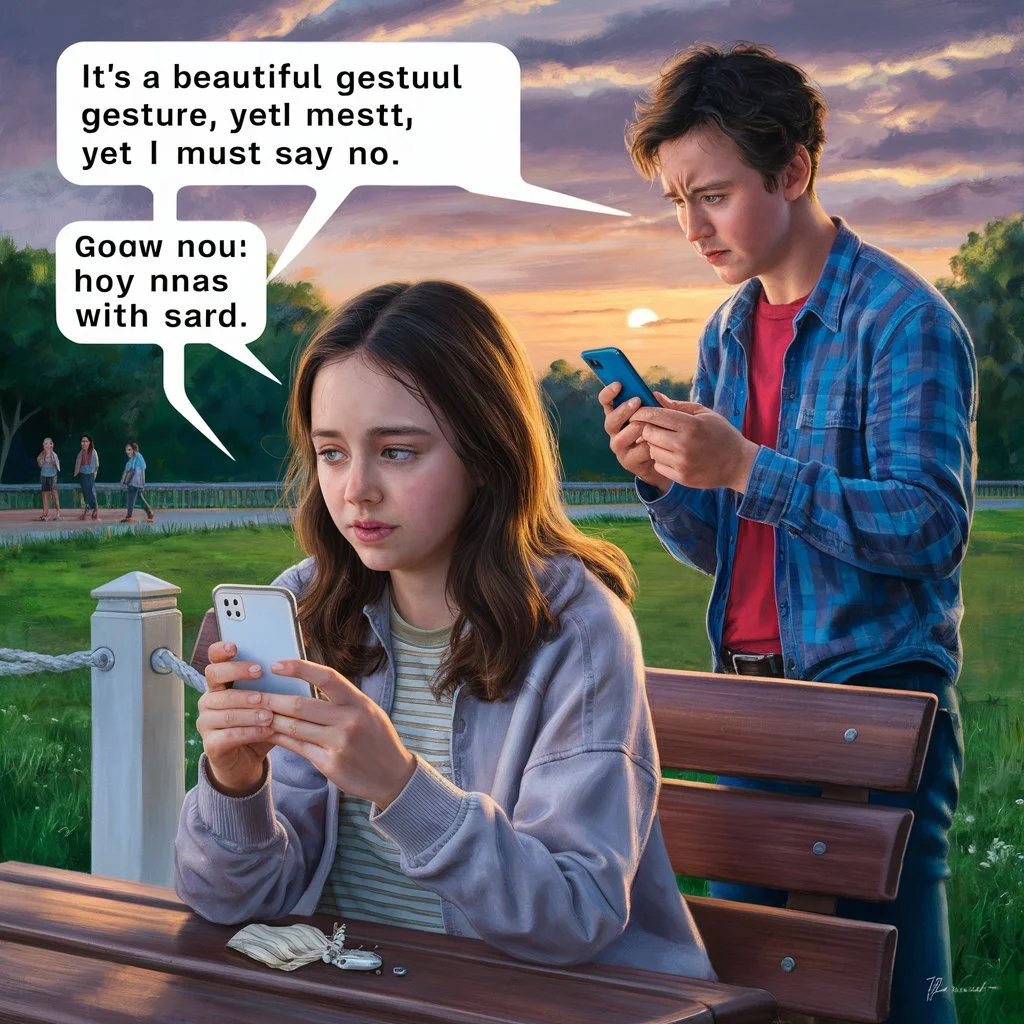Last updated on July 20th, 2024 at 07:24 am
Receiving a marriage proposal is a significant moment in anyone’s life, filled with emotions and expectations. However, not every proposal leads to a ‘yes’.
Knowing how to navigate this delicate situation with grace and respect is crucial to preserving relationships and mutual respect.
In this guide, we explore various ways to politely decline a marriage proposal via text, offering 30 creative replies to handle this sensitive conversation with empathy and clarity.
I Appreciate Your Feelings, But

When you receive a heartfelt proposal but need to decline, starting with appreciation sets a considerate tone.
For example:
I appreciate your feelings, but I have to be honest…
Explanation:
This approach acknowledges the courage it took to propose while gently communicating your decision.
It Means a Lot, But I Have to Say
Using phrases like “It means a lot” acknowledges the significance of the proposal. Follow it with a clear but gentle decline.
For instance
It means a lot, but I have to say that I’m not ready for this step right now.
Explanation:
This response shows gratitude while expressing your current stance.
Your Proposal Touched Me, However
When a proposal touches you deeply but isn’t what you want, respond with empathy.
For example:
Your proposal touched me deeply; however, I need more time to think about us.
Explanation:
This response shows understanding while being honest about your feelings.
I’m Honored, But I Can’t Accept

Expressing honor and respect is important in any rejection.
You might say
I’m honored that you feel this way about me, but I can’t accept your proposal.
Explanation:
This response balances gratitude with clarity.
This Took Courage, Yet I Have to Decline
Acknowledge the courage it took to propose while gently declining.
For example:
I know this took courage, yet I have to decline as I don’t see us moving in that direction.
Explanation:
This shows empathy and honesty.
I Value Our Relationship, Yet I Can’t Move Forward
Emphasize the value of your relationship while explaining your decision.
You could say
I value our relationship deeply, yet I can’t move forward with a marriage right now.
Explanation:
This response reaffirms your relationship while being clear about your intentions.
Your Proposal Is Special, But I Need to Decline

When a proposal is heartfelt but not what you want, respond kindly.
For example:
Your proposal is special, but I need to decline because I don’t feel ready for marriage.
Explanation:
This response acknowledges the sentiment behind the proposal.
I’ve Given It Thought, but I Have to Reject
Show that you’ve considered the proposal seriously before declining.
For example:
I’ve given it thought, but I have to reject your proposal because I’m not in the same place as you right now.
Explanation:
This communicates thoughtfulness and honesty.
It’s Heartfelt, But I Can’t Say Yes
Acknowledge the heartfelt nature of the proposal while being clear about your decision.
For example:
It’s heartfelt, but I can’t say yes because I believe we need more time to understand each other better.
Explanation:
This response shows respect and honesty.
I’ve Considered It, Yet I Must Decline

If you’ve thought about the proposal but still need to decline, communicate it sincerely.
For example:
I’ve considered it, yet I must decline because I feel it’s not the right timing for us.
Explanation:
This response shows introspection and honesty.
Your Proposal Is Meaningful, But I’m Not Ready
When a proposal holds meaning but you’re not prepared, respond with care.
For example:
Your proposal is meaningful, but I’m not ready for marriage at this point.
Explanation:
This communicates appreciation for the proposal’s sentiment.
I Respect Your Proposal, However
Show respect for the proposal while explaining your decision clearly.
For example:
I respect your proposal; however, I don’t think I’m ready to take this step with you.
Explanation:
This response balances respect with honesty.
It’s a Beautiful Gesture, Yet I Must Say No

Acknowledge the beauty of the gesture while gently declining.
For example:
It’s a beautiful gesture, yet I must say no because I don’t feel ready for marriage.
Explanation:
This shows appreciation while being honest about your feelings. Your Proposal Is Kind, But I Need to Decline…
I’ve Thought About It, Yet I Have to Say No
If you’ve considered the proposal but need to decline, express your thoughts honestly.
For example:
I’ve thought about it, yet I have to say no because I believe we want different things in life.
Explanation:
This response shows reflection and honesty.
Your Proposal Touched Me Deeply, But I Can’t
When a proposal touches you deeply but you can’t accept, respond with empathy.
For example:
Your proposal touched me deeply, but I can’t accept because I feel we have different timelines for our future.
Explanation:
This shows understanding while being honest.
It’s Heartwarming, But I Have to Decline

Acknowledge the warmth of the proposal while gently declining.
For example:
It’s heartwarming, but I have to decline because I think we need more time to grow individually.
Explanation:
This communicates appreciation while being clear about your feelings.
I’ve Thought Long and Hard, Yet I Must Reject
If you’ve deliberated on the proposal but need to reject it, communicate your decision thoughtfully.
For example:
I’ve thought long and hard, yet I must reject your proposal because I don’t feel ready for marriage.
Explanation:
This response shows introspection and honesty.
Your Proposal Means a Lot, But I’m Not Ready
When a proposal holds significance but you’re not prepared, respond with consideration.
For example:
Your proposal means a lot, but I’m not ready for marriage at this point in my life.
Explanation:
This communicates appreciation for the proposal’s sentiment.
Conclusion
Knowing how to decline a marriage proposal via text involves choosing the right words to convey your feelings honestly while respecting the emotions of the proposer.
These 30 creative replies provide a range of responses that balance appreciation with clarity, helping you navigate this sensitive conversation with sensitivity and empathy.

Nicholas Clark is the visionary behind ReplySwift.com. With a talent for crafting concise and impactful responses, Nicholas helps others communicate with clarity and confidence. On ReplySwift.com, he provides expert advice, practical templates, and valuable insights to enhance every reply.












